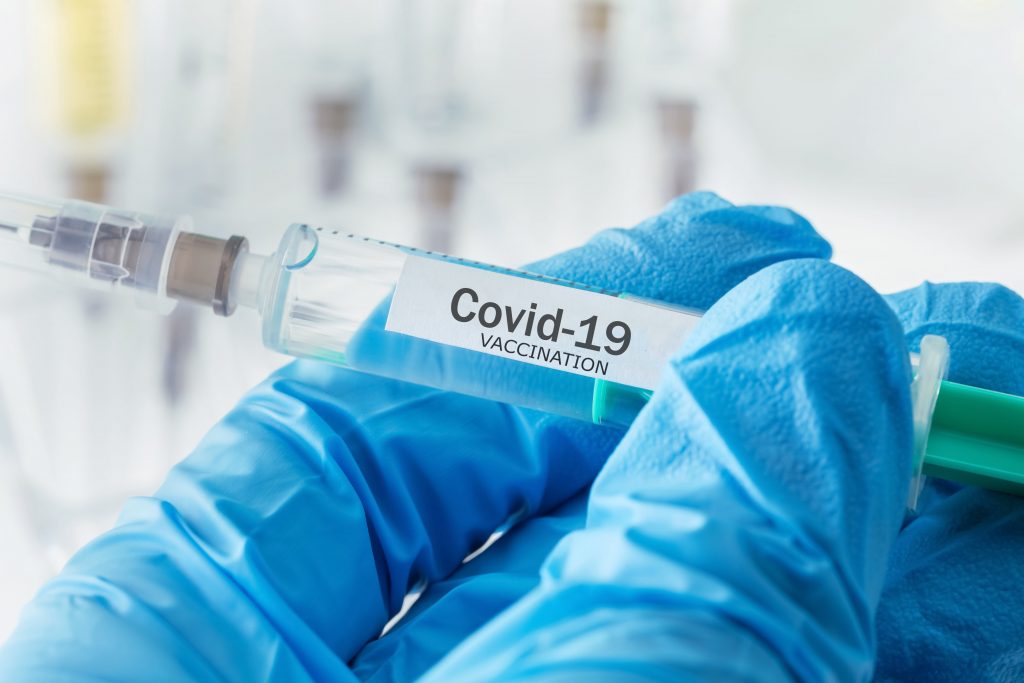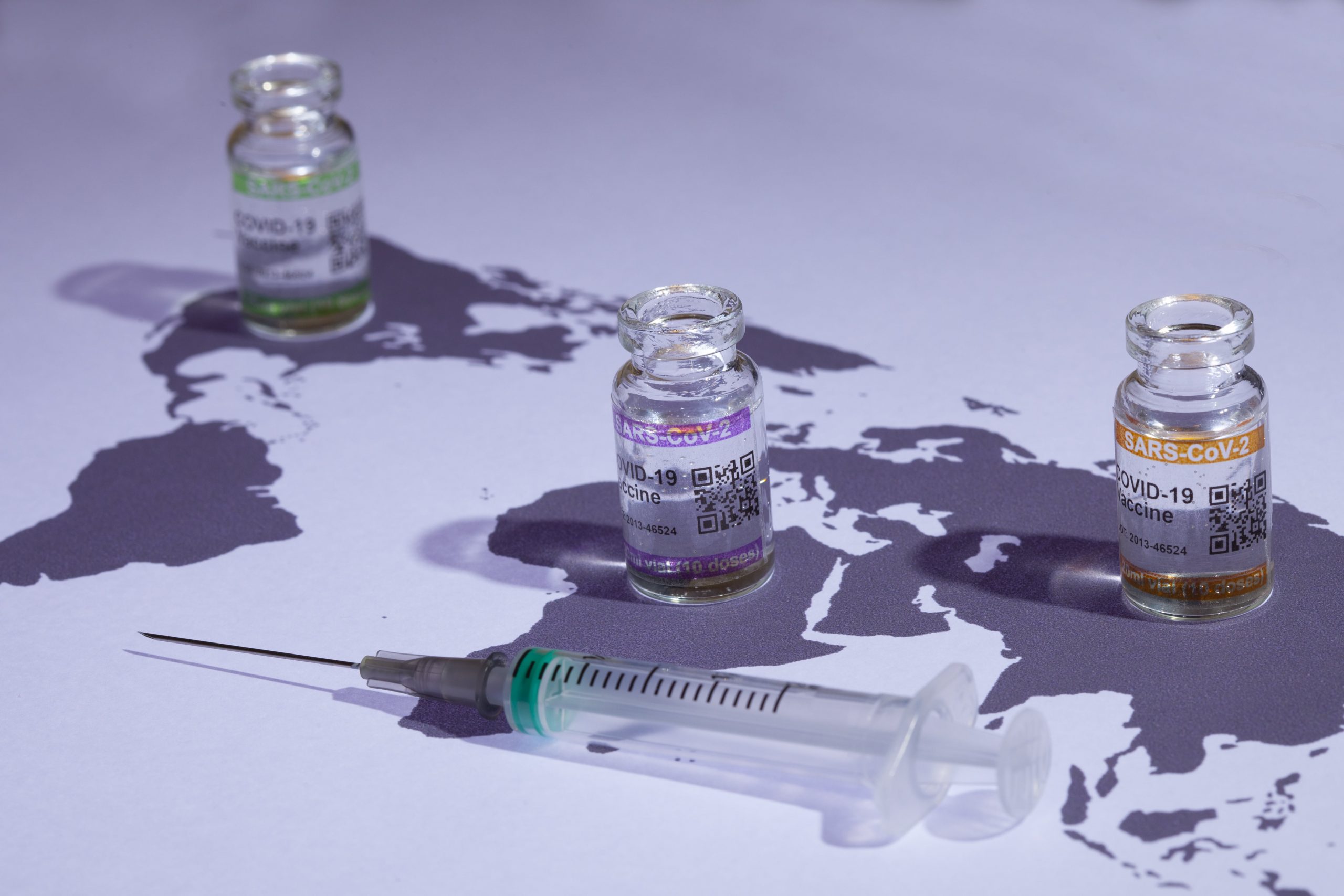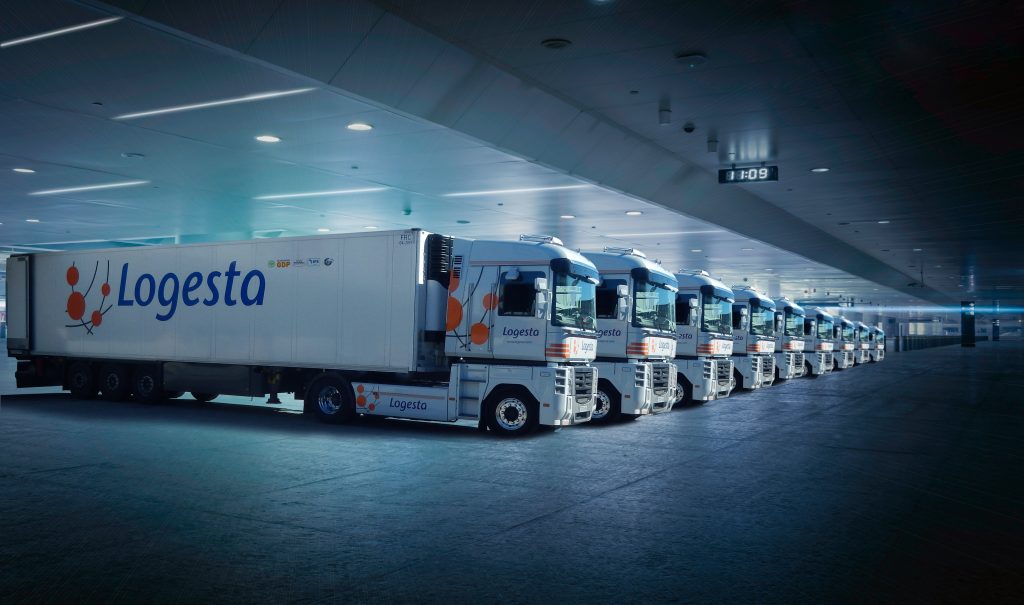The much-desired vaccine against COVID-19 seems to be very close now, after companies such as Pfizer, Moderna, and AstraZeneca, have presented encouraging results. Great news, which brings the end of a pandemic that has caused more than one and a half million fatalities closer, through which more than 62 million people around the world have been infected. It seems that we are already close to seeing the light at the end of the tunnel. However, the process of administering the vaccine to the entire population presents a multitude of questions that are still unresolved, one of them being logistics, which is of great significance when it comes to these kinds of sensitive products.

Now, it seems clear that production will take place in Europe, North America, China, and possibly Russia. China aims to sell its vaccines globally, but it seems that it does not yet have the backing of Western pharmaceutical companies. Russia’s vaccine will likely go towards meeting its extensive domestic demand. As for the rest, the highest production will be concentrated in:
- The USA, in Gaithersburg-Maryland for AstraZeneca, and in Kalamazoo-Michigan for Pfizer
- UK, concretamente en Cambridge en la planta de producción de AstraZeneca y en Oxford
- Bélgica, for Pfizer
- Suiza, for Moderna.
In other words, both Europe and North America will have standard distribution patterns, with a main production facility capable of serving much of the continent. This centralization has many implications for storage and transportation. Only specialist, consolidated operators with sufficient resources will be able to take on this significant challenge in terms of global demand.
Additionally, investments are being made in other production plants in locations such as France, Spain, Japan, Brazil, and Australia. In India, for example, production is managed by the Serum Institute of India, one of the largest vaccine producers in the world, which has already sealed an agreement with AstraZeneca. And new production locations will surely emerge in 2021, so distribution patterns will be dynamic and may be altered frequently.
But we must not only speak of difficulties for geographical reasons. Pharmaceutical logistics is already complex in itself and requires an operator with a high level of specialization, as is the case when it comes to the Logista Group. It must be pointed out that, in order to carry out this type of transport, it is necessary to comply with Good Distribution Practices (GDP), Directive 2001/83 / EC or national regulations, as is the case in Spain, due to the Royal Decree 782/2013, of October 11, on the distribution of medicines for human use. In other words, a certified quality system is required, which implies having implemented:
- robust and proven procedures and protocols
- validated contingency plans
- specific training systems for drivers and staff
- validated routes
- qualification of facilities and trailers
- specific and periodic cleaning and disinfection systems
- temperature control
- security system
A critical requirement in the transportation of medicines is temperature control. There are different types: ambient temperature with or without ventilation, controlled temperature from + 15ºC to + 25ºC, refrigerated transport between + 2ºC to + 8ºC, frozen transport above -20ºC, transport with dry ice at -80ºC and transport with liquid nitrogen at -196 °C.
Specifically, the Pfizer and Moderna vaccines, which share the same and novel technique using the RAN messenger mRNA (a technique that consists of inoculating the genetic code that carries the virus inside, simply protected by a lipid), have extremely strict temperature requirements. The one by Pfizer / BioNTech needs to be stored at -80ºC. The Moderna one requires the habitual temperatures in the sector, having to remain stable between 2ºC and 8ºC for 30 days, but requiring storage at -20ºC, with a shelf life of 6 months. According to some experts, the reason for this difference is that Moderna’s vaccine has three times the amount of RNA, and therefore, even if part of it is degraded, it is still effective in the end. When it comes to AstraZeneca’s, it has been reported that its experimental vaccine can be kept at a more common temperature for transporting medicines, between 0ºC and 8ºC.
Therefore, maintaining the temperature, so that the cold chain is not broken, is a priority in order that the vaccines arrive in optimal conditions at pharmacies and hospitals. In order to do this, powerful temperature control systems are required, such as the specific software for remote and real-time monitoring that we use at Logesta. The system also comes with 24×7 customer service, which evaluates and manages potential alarms and organizes immediate assistance in the event of any possible temperature excursion. Despite these strict temperature requirements, it is true that the logistics of producing messenger RNA vaccines are less complex than those for the traditional attenuated “live” virus and inactivated “killed” virus vaccines, fundamentally for two reasons. First of all, production times are shorter; and second, it is easier to increase production capacity.
These are factors to take into account, since we are facing an unpredictable demand, another of the challenges of your logistics. It is true that there is talk of the commercialization of 15 billion vaccines, assuming 2 doses per  inhabitant, but some relevant questions have yet to be dealt with, such as: the volume of the world population that will be willing to be vaccinated, the real vaccination capacity of each of the countries, whether or not it will be possible to reach all the continents, the seasonality of the vaccination campaigns, etc.
inhabitant, but some relevant questions have yet to be dealt with, such as: the volume of the world population that will be willing to be vaccinated, the real vaccination capacity of each of the countries, whether or not it will be possible to reach all the continents, the seasonality of the vaccination campaigns, etc.
Therefore, the limited shelf life of the vaccine and the variability in demand are factors that the transport operator must be able to handle, with the technology and the infrastructure needed in order to take charge of this fluctuation in demand and temperature control. To add to all this complexity, Organized Crime Groups will be looking for any opportunity to intercept supply chains and “get hold of” the much coveted vaccines. Should such losses arise, they would have a significant impact on the world community, both from an economic and a public health perspective.
Interpol prepared a report on November 20th, in which it warned all European police forces to establish control mechanisms and devices in the COVID-19 vaccines production and distribution centres. From a policing point of view, the international body is working under the assumption that, as soon as the vaccine is put on sale and is circulating in the international market, it will be a priority target for organized crime groups, just as masks, COVID-19 tests and hydro-alcoholic gels have been. Jürgen Stock, INTERPOL Secretary General, has even described the vaccine as “liquid gold” in his latest statements.
Some companies like Pfizer, as The Wall Street Journal recently revealed, have begun to implement their own measures to protect their medicines, such as installing GPS devices in the containers that will transport the doses, or in the refrigerators themselves, to monitor whether they follow the programmed route. Likewise, they value the option of diverting attention, with ‘trick trucks’, scheduling fake shipments with trucks without vaccines.
Managing traceability is, therefore, another fundamental factor in guaranteeing the delivery of vaccines. And not only a GPS tracking system is needed. There are also many other requirements, which to a large extent ensure compliance with the TAPA (Transported Asset Protection Association) safety standards. Due to being specialists in the transport of high-value goods, at Logesta we have a dedicated and specialized Security Department, whose first responsibility is to carry out a risk analysis, based on which we define standards and procedures. We dedicate significant efforts to R + D + i, investing in cutting-edge technology to equip our vehicles with state-of-the-art functionalities. Our intelligent software discriminates and prioritizes risk situations. We control routes and stops in a European network of approved lorry parks. From our facilities, thanks to Geofencing systems and the Alarm Receiving Centre, we can manage any alarm that occurs in Europe, 24×7. In addition, we actively participate with security associations, and we are in continuous and close collaboration with the State Security Forces and Agencies.
As El Economista published a few weeks ago, “Logista has the cold network and is emerging as the best prepared to distribute the covid-19 vaccine.” Our group currently works with more than 200 laboratories as clients, and has three large pharmaceutical plants with more than 60,000 square meters.
In conclusion, Logesta guarantees maximum geographical coverage throughout Europe, as well as full operational integration, physical and thermal traceability in real time, compliance with the highest quality standards (GDP certification) and security (TAPA certification). All this, together with our knowledge of the medicine transport market, puts us in position as one of the best alternatives for the transport of the SARS-CoV-2 vaccine. We are aware of the responsibility that this entails, and we are prepared to take on one of the greatest logistical challenges in recent years.

Posted on December 10, 2020
